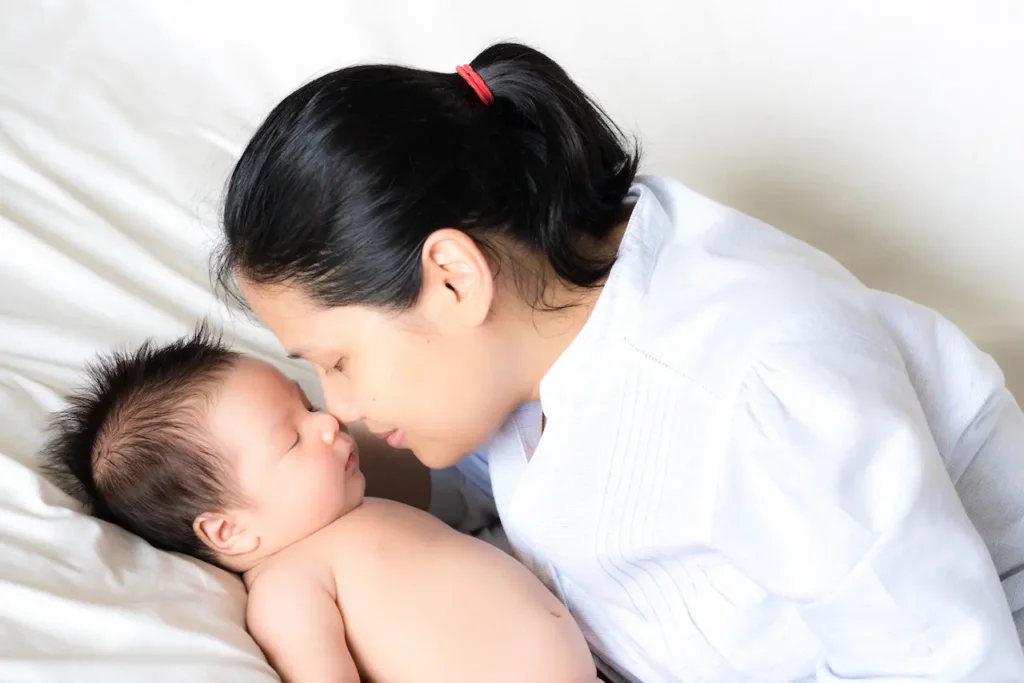Sleepless nights can be the most difficult part of early parenthood, and there are important things you should know about baby sleep understanding your baby’s sleeping patterns is a great way to help you and your child adapt to a routine. Sleep is a crucial part of your baby’s development and growth, and it can affect both your mental and physical health, leading to confusion and stress.
Fran Chavasse is a senior nurse educator from Tresillian Childcare Centre. She emphasizes the importance of a baby’s sleep pattern to their growth. Parents can help make early parenting a little less stressful by understanding the science behind baby sleep. They can also incorporate some tried and tested tips to ensure their babies are getting the sleep they require.
1. Sleep Patterns in Utero Can Provide Clues About a Baby’s Sleep Habits
Your baby indeed begins to sleep before they are born. Sleep-wake patterns are formed in the womb. These early patterns provide important clues to their sleeping habits after birth.
Fran Chavasse says that if a mother can think, talk, and listen to her baby, she will be able to tell when their child is awake or asleep.
The mother’s awareness during pregnancy of the baby’s activity can provide important insight into when the child may be alert or awake once born. If your baby is active in the morning (between 2-4 am), you may notice that they stay awake at the same time after birth. These patterns may not be accurate all the time, but they can provide a good indication of how your baby will sleep.
Parents can better predict their baby’s sleep cycle by understanding these early cues. This will make it easier for them to create a routine and help improve sleep expectations.

2. Circadian Rhythms of Newborn Babies are Not Developed
The circadian rhythms of newborns, the body’s internal clock, which regulates sleep and wake cycles, are still developing. Adults have a good sense of the time when they should be awake and when to go to bed. However, newborns don’t have that same rhythm.
Fran Chavasse says that babies do not have a rhythm of day and night during the first month. This is developing. Essentially, newborns don’t yet know the difference between night and day, so they sleep in short bursts throughout the day.
This is perfectly normal. Circadian rhythms develop over several months. By the time your child reaches 3-4 months old, they’ll be able to distinguish between night and daytime sleep. Your baby’s sleep pattern will still be random until then and is influenced more by the need to sleep than by external factors such as light or darkness.
You must remain patient as a parent during this time. Your baby’s body is slowly learning to sync up with the 24-hour cycle of day and night. Create a sleep-friendly atmosphere and offer cues such as a calming routine at bedtime and a clear distinction between day and evening.
3. Babies Have a Fast Sleep-wake Cycle
Newborns are characterized by a short sleep-wake cycle, sleeping only for short periods and waking up frequently. In the first weeks of life, their sleep is broken up into short naps, and the periods between naps are also usually brief. Fran Chavasse explains that babies’ sleep-wake cycles are “free-running,” which means they’re not yet tied to an adult-like rhythm.
This rapid alternation of sleep and wakefulness is most noticeable during the first few weeks. A newborn may sleep for 30 minutes up to 3 hours. In the early days of your baby’s life, they may need to be changed or fed, causing disruptions to their sleep cycle. It’s important to keep in mind that this is a temporary stay, age, and your baby will develop new sleep habits.
Around four weeks of age, some babies begin to change their sleep patterns. They become more alert during the day and sleep longer at night. Many babiecanto sleep longer at night by six months and have a more regular sleep-wake pattern.
As your baby grows older, his or her sleep pattern will mature and consolidate. As your baby grows, you will likely see a more defined pattern emerging. Perhaps a longer sleep period in the evenings or more consistent naps during the day.

4. Breastfeeding Mums’ Bodies Help Regulate Their Baby’s Sleep Patterns
Breastfeeding is a great way to promote sleep in your baby. Melatonin is a key hormone that helps regulate sleep and wake cycles.
Fran says, “Melatonin helps you sleep.” Melatonin is a hormone that naturally aids in the preparation of sleep. It begins to increase at night and reaches a peak in the early morning. It is interesting to note that breastfeeding mothers’ melatonin increases in the evening. As a result, their breast milk will be richer in this hormone at night.
Melatonin helps both mothers and babies fall asleep. Fran explains that breastfeeding mothers help their babies fall asleep by passing melatonin to them via breastmilk. Although babies have their melatonin, it can take time for this to develop. Breastfeeding provides a natural boost in melatonin that can help regulate your baby’s sleep.
Melatonin, one of many natural ways in which breastfeeding mothers can support their baby’s growth and development, is a great example. Breast milk is not only nourishing, but it also has many other benefits. It can help with a baby’s sleeping patterns.
5. Babies are Unable to Sleep When There is Excessive Light
Light plays a significant role in regulating sleep, and for newborns, too much light exposure–particularly in the evening–can disrupt their ability to fall asleep. Babies are still learning how to adapt to their circadian rhythms, and their sensitivity to light can affect their sleep patterns.
Fran Chavasse explains that the blue light from screens, such as those on phones, consoles, tablets, and computers, can interfere with sleep by delaying melatonin production. Overexposure to light, particularly in the evenings, can cause your baby’s sleep cycle to be disrupted.
Parents should be aware of the importance of managing their baby’s light exposure, particularly at night. When it’s time to sleep, you want everything dark and quiet. Avoid using electronic devices near your baby, and dim the lights about an hour before bedtime. Blackout curtains can be used in the baby’s bedroom to create a dark, peaceful environment.
Be mindful of your home’s lighting. Fluorescent lighting, flickering television lights, and fluorescent lights can affect your baby’s ability to sleep. To promote a calm environment, it’s best to use warm, soft lighting at night.
6. Evening Feedings Can Disrupt a Baby’s Sleep Patterns
In the first few weeks of life, when babies are hungry all day long, night feedings can be a necessity. Overnight feedings may inadvertently disrupt sleep patterns. Babies often associate being awake with being fed. They may begin to wake up throughout the night expecting to be fed.
Fran Chavasse explains that it’s important to distinguish between daytime and nighttime milk if you are breastfeeding or pumping. This helps your baby to distinguish between day and evening, which will reduce the frequency of feedings at night.
Parents can reduce nighttime feedings to promote better sleep patterns as their babies mature. When your baby is 3-4 months old, he or she may be able to go longer periods without eating at night. It may take some time for your baby to adjust. Be patient. You can shift your baby’s feed schedule if you are ready to do so. This will help them learn to sleep longer without being woken up for a feeding.

How Much Sleep Do Babies Need?
Each baby has different sleep requirements, but you should be aware of the general guidelines so that your baby gets enough rest. According to the National Library of Medicine (NLM), babies need approximately the following amount of sleep per night:
- 0-4 Months: A newborn’s sleep needs can range from 11 to 19 hours per day. They also need frequent naps both during the day and at night. It’s important to not worry if the sleep patterns of your baby don’t meet expectations.
- 4-6 Months: At this age, infants need between 12 and 16 hours of sleep per night. They also begin consolidating their sleep at night. They may begin to sleep longer periods without being awakened.
- From 6-12 months: Babies start sleeping longer at night (typically 10-12 hours), with some wakings for feedings. Sleep regressions can occur as a result of milestones such as teething or learning how to crawl.
Tracking your baby’s sleep and understanding how much rest they require can ensure they get the sleep they need to grow.
Conclusion
There are a few general principles to guide parents. While each baby is different and has a unique sleep pattern, they can still be guided by some of the basic principles. A consistent routine is key, as are managing light exposure and encouraging healthy eating habits.
You’ll both find the right rhythm with time, patience and attention to each baby’s needs. Sleepless nights, challenges and other difficulties are all part of the developmental journey for your baby. With the right strategies, you and your baby will be able to navigate this phase and hopefully enjoy peaceful sleep shortly.



